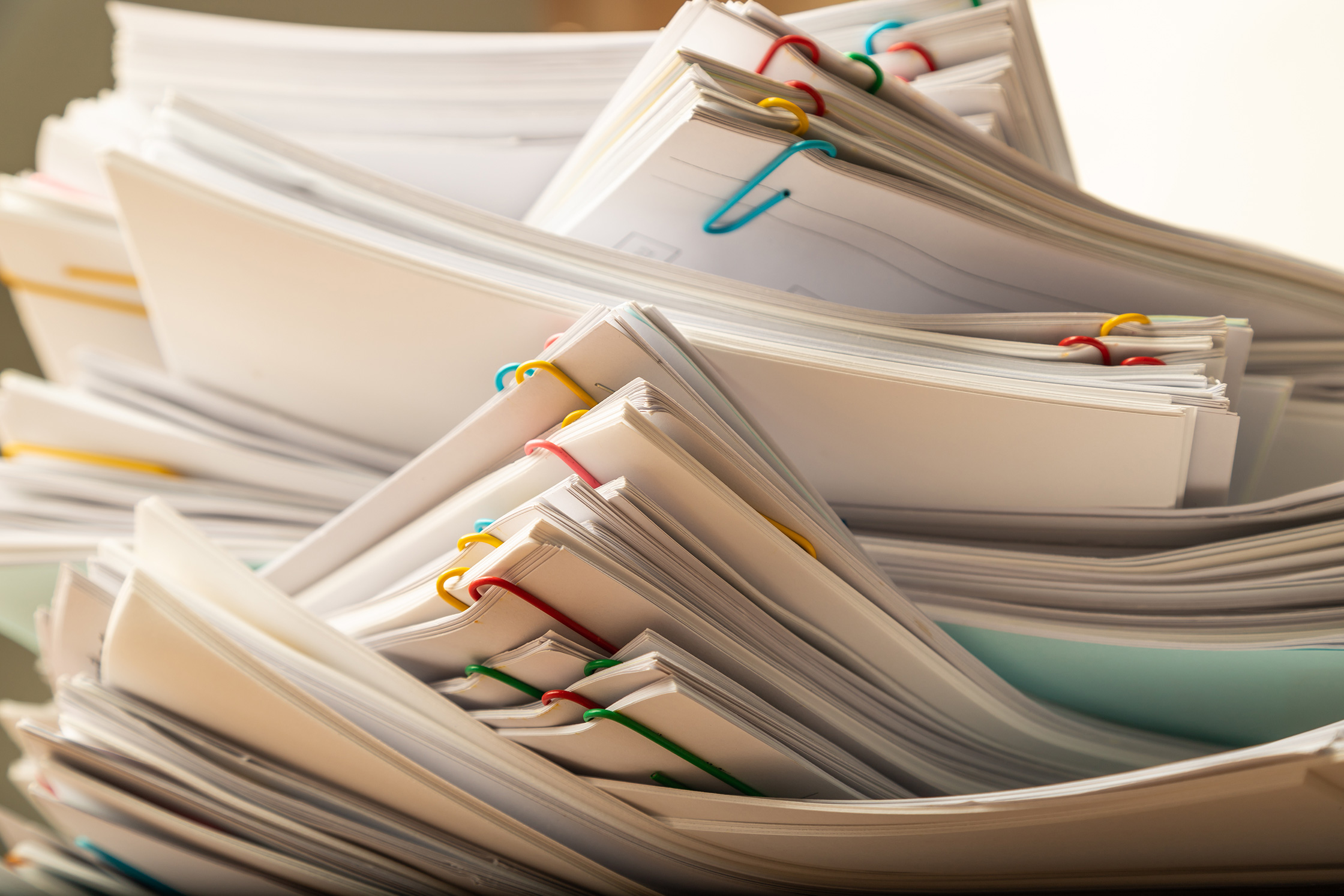
Just thinking about keeping track of financial, legal and personal documents can be stressful. Now that 2019 has come to an end, you may be feeling overwhelmed by the pile of receipts, pay stubs, tax forms and other business and/or personal paperwork that accumulated during the year.
What you may not realize is that it’s not always necessary to keep copies of everything. In fact, you might be surprised to discover how many of these documents can be tossed. The start of the new year is the ideal time to review and evaluate just how long you need to keep your tax returns, receipts, bank statements, and other important records. The following are some general guidelines for what to save and when to shred, if you have any specific questions please talk to your accountant
Keep Forever
You may need these important documents at any time, for any number of reasons.
- Marriage Licenses
- Birth Certificates
- Wills
- Adoption Papers
- Death Certificates
- Records of Paid Mortgages
- Military Records
Keep for 1 Year
- Pay Stubs (can be discarded after comparing them to W-2 and Social Security Statements.)
- Utility Bills (unless you’re claiming a home office tax deduction, in which case you must keep them for 3 years.)
- Receipts (unless needed for tax purposes, then keep for 3 years. For major purchases such as appliances and electronics, keep until the warranty expires or the item can no longer be returned/exchanged.)
- Bank Statements (unless needed for tax purposes, then keep for 3 years.)
- Quarterly Investment Statements(until you get your year-end statement.)
Keep for 3 Years
- Receipts and Credit Card Statements and other documents that support income or deductions on your tax return.
- Medical Bills and Cancelled Insurance Policies if you are using them for a tax deduction.
- Records of Selling a House or a Stock (for documenting Capital Gains Tax.)
- Annual Investment Statement (for 3 years after you sell your investment.)
- Bank Statements (for up to 3 years if you are audited by the IRS. Or go paperless and switch to online statements.)
- Home Improvement Records (for at least 3 years after the due date of the tax return that includes the income or loss on the sale of the home. If you plan to sell the house and have made improvements, keep those receipts for 7 years.)
- Income Tax Returns. The IRS recommends keeping records for 3 years from the date you filed your original return or 2 years from the date you paid the tax (whichever is later) if you file a claim for credit or refund after you file your return.
Keep for 7 Years
- Records of Satisfied Loans
Keep While Active
- Contracts, Insurance Documents, Property Records, Stock Certificates and Records of Pensions and Retirement Plans. After contracts are completed or insurance policies expire, these can be discarded.
Remember that each type of document is different and there are exceptions to many of these guidelines. For instance, the IRS recommends keeping copies of all filed tax returns to help in preparing future returns or making computations when filing an amended return.
If you, your client or a loved one needs help handling their financial, personal and/or legal documents, Liberty Paperwork Solutions can help. We’ll partner with you to create streamlined solutions that eliminate stress – all while keeping the details secure and confidential. Call or email us today for a free, confidential conversation.
